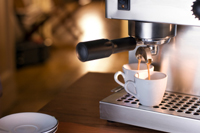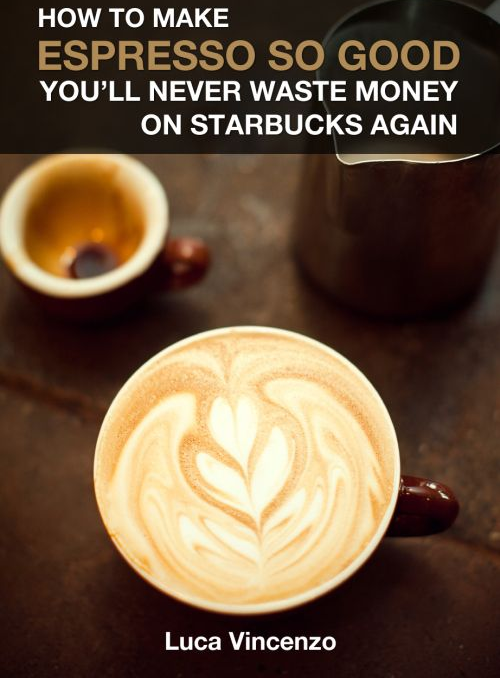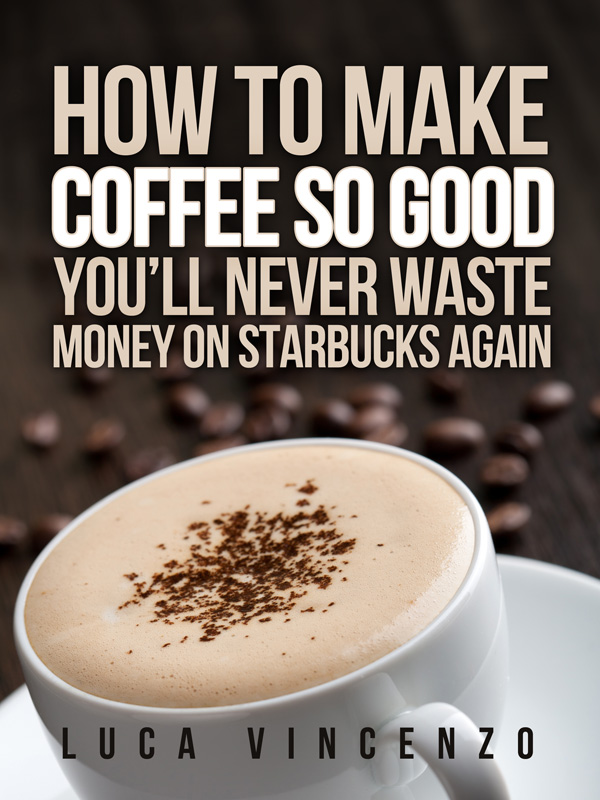How To Make A Killer Espresso
Make espresso so good that you’ll never go to coffee house again!

So you want to know how to make an espresso? Great! As you may know, there’s a bit of an art to making great espresso coffee, but don’t worry, we can help! Before we explain how, what exactly is an espresso?
The name espresso is Italian in origin. It was first coined around 1900 and, loosely translated, means a cup of coffee brewed expressly (just) for you. Today, you will often find that people incorrectly pronounce or spell it “expresso.” Many think that cappuccino and latte are the same as espresso (they aren’t). What makes a true espresso?
Is it the bean?
No. Marketing and word of mouth has led people to believe that the type of bean determines whether a brew is espresso or not. This isn’t true. Any type of bean can be used to make good espresso.
Is it the blend
No. Although there are blends of beans created just for espresso, the blend doesn’t make it espresso. The pursuit of the perfect espresso blend has led to this common misunderstanding. Some roasters say that you can only make a good espresso with the right blend.
Is it the roast?
No. Some think that espresso must be an extremely dark roast; however the espresso roast varies from region to region. In California, you will see a dark or “French” roast. On the east coast, a light roast is common. And in Northern Italy, a medium roast is normally used. Any roast can be used to make good espresso. It is simply a matter of taste.
Are all espresso machines really espresso machines?
No. There are machines out there sold as “espresso machines” that aren’t true espresso machines. These machines are usually electric “moka” style machines that use steam pressure to force water through the ground beans. Steam pressure can only produce up to 1.5 BAR or 50 PSI (pounds per square inch) of pressure. A real espresso machine must produce at least 9 BAR or 135 PSI to force the water through the finely ground and compacted ground beans. The steam driven moka machines are often sold in major department stores for $75 or less.
So, what is espresso?
Espresso coffee is a small (1 to 2 oz.) shot of pressure-brewed coffee, using about 1 Tablespoon of finely ground coffee. Brewing takes about 25 to 30 seconds and when done properly, it will feature a layer of rich, dark golden cream, called crema on the surface. This crema is one indictor of a quality espresso. Making a great espresso is truly an art as well as a science.
So how do you make a great espresso?
Before you continue, make sure you understand the basics of making espresso. If you don’t know what a tamper or porta-filter is, read this article on espresso basics first!
Now, the different phases of making a great espresso are roasting the beans, blending them, grinding them, tamping them and then making the espresso.
The first thing you’ll need is a good espresso machine. There are several types of espresso makers (autmoatic, semi-automatic, manual, stovetop), many different brands (Starbucks, Delonghi Gaggia, Jura-Capresso, Breville and more) and prices vary greatly ($200-$4,000), so we recommend you look at our guide to help you choose the machine that will best fit your needs.
The next thing you’ll need is the right coffee grinder. Once again, you have some options as to grinders, so we recommend you check out some different coffee grinders.
Lastly, you’ll need outstanding beans. Click here to see the beans we recommend.
If you already have a machine, grinder and beans, let’s get to it!
The first thing you need to identify is whether your machine is steam driven or pump driven. If you aren’t sure, consider this: if you have to pour water in the top and screw the lid down, your machine is probably steam driven. If you simply pour water into a large tank, press a button and the machine starts making all kinds of strange noises, your machine is probably pump driven.
The Grind
Coffee ground for steam-driven machines will need to be finer (it’ll take longer) than for the pump-driven machine because steam-driven machines don’t pack the “oomph” that pump-driven machines do when pushing the water through the grounds.
The heat and humidity level of where your beans are stored even affects the taste of the espresso, but that’s something covered in more detail in our eBook on espresso making.
The Ratio of Coffee to Water
You should be using approximately one tablespoon of grounds to every ounce of water. This is an important ratio as putting too little or too much water can lead to over- or under-pulling your shot. As you know, there are 8 ounces in a cup of water.
The Procedure
1. Pre-heat the glass the beverage will be served in and place under porta-filter.
2. Begin grinding beans by turning on grinder.
3. Immediately remove porta-filter from the espresso maker, knock out old grounds into a tamp box, and wipe basket dry with a cloth.
4. As coffee is still grinding, dose enough coffee to fill the basket and stop the grinder.
5. Level the grounds in the basket by pulling them forward and then pushing them to the opposite side until the whole basket is evenly filled.
6. Take the tamper and press down with 5 pounds of pressure. Gently knock the porta-filter with the back of the tamper and press down with 30 pounds of pressure. Polish the surface by turning 720° while pressing with about 20 pounds of pressure.
7. Let 2 ounces of water flow through group head.
8. Place porta-filter in group head and turn on pump.
9. When espresso begins to flow, start timing.
10. If you want a sweeter espresso, stop the flow at about 17 seconds. If you want a more bitter coffee, let it flow longer, but never longer than 25 seconds. Other “signs to stop” are when about 1.5 ounces has been brewed, or after it begins to turn slightly lighter in color.
Here’s a short video clip of how the process goes!
Well, I hope that gets you started with making great espresso. However, to make outstanding espresso, you should learn a little more!


 2008 © Copyright MakingEspresso.com. All rights reserved.
2008 © Copyright MakingEspresso.com. All rights reserved.